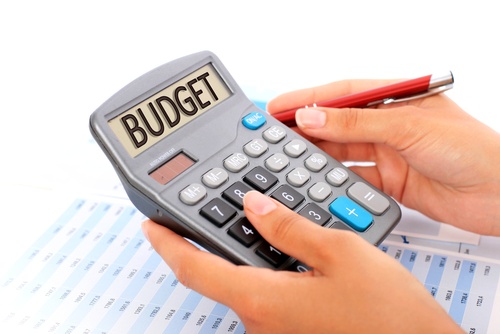
Ding!! Yup, that's the sound of your first salary payment or probably the first significant salary after a career upgrade.
Beginning your career journey and getting compensated for it for the first time is exciting and memorable. However, as a first-time employee, the associated deductions like taxes and pension annuity contributions can come as a surprise.
Furthermore, deducting essential expenses like rent, school fees, and home upkeep without a solid financial management plan can overwhelm you. In fact, research shows that 63% of Nigerians say that their income is not enough for them, let alone with dependants.
Knowing how to manage your money before it hits your bank account enables you to create a long-term safety net for yourself. Sounds like a lot of work, right? No worries; we'll explore six good money habits to start with your first salary.
1. Understanding your Fixed Monthly Expenses
A good thing about fixed monthly expenses is that they are expected, and having a fixed income enables you to plan accordingly. Deductions like rent, utility bills, subscriptions, etc., are constant, and you have to ensure that you're spending less than you're earning.
Ultimately, tracking your expenses on an Excel spreadsheet, apps like Expensify and GoodBudget, or your notebook helps you stay aware of your expenses and make adequate financial decisions.
2. Create a Budget
A key to appropriately spending your first salary is to create a workable budget. A reasonable budget lets you keep track of your expenses and enables you to start saving realistically.
Listing your expenses in a budget helps you learn what items are necessary and which are non-essential. A common budgeting rule you could start with is the 50-30-20 rule, which involves dividing your income into three groups.
These categories include 50% for your needs, 30% towards your wants, and 20% for savings. For instance, if you earn 100,000 naira per month, you can set aside 50,000 for rent, school fees, and utilities.
You can also allocate 30,000 naira for wants, like eating out and entertainment, and finally set aside 20,000 naira for savings. Ultimately, spending according to your budget helps you build good money habits.

(Source)
3. Set up an Emergency Fund
You should balance the excitement of earning your first salary with the need to plan properly for your financial future. If there's a common truth, it's that life doesn't always go according to plan, which is why you need to build an emergency fund for unexpected uses.
You can draft out what you consider an emergency, such as a health crisis or an accident. A workable rule of thumb is to have enough savings to handle six months' worth of unexpected expenses.
Consider putting these funds in a high-yield savings account like the Moniepoint Personal savings plan.

(Source)
4. Pay off Pending Debts
Earning your money without anyone dictating how you can spend it comes with its temptations. This is why, upon earning your first salary, create a plan to pay off any pending debt and avoid creating more.
You can maintain solid long-term financial goals by prioritizing paying off essential debts and only taking calculated loans.
5. Start an Investment
The best time to start investing is yesterday. This is a sure way to grow your money even while sleeping. You can start by learning about the various investment options and explore which ones match your risk profile to aid you in making informed decisions.
Regardless of how little you want to start with, you can gain financial freedom by building your investment portfolio over time.

6. Enjoy Spending your Disposable Income
Whether you wish to save up for a vacation or enjoy the immediate gratification of ordering your long-awaited desires, your disposable income is yours to spend.
We all have a responsibility to take care of ourselves, and it is advisable to do so after deducting essential expenses. Proper money management can be complicated at first, but your financial situation becomes favourable once you get the hang of it.
7. Saving for Retirement
We all expect to grow old someday, and it's only proper to lay the financial foundations for that phase by saving for retirement.
By leveraging the principle of compound interest on your initial deposits, you can earn increased interest and build up your retirement accounts.
Your company-sponsored retirement plans are adequate as you get to put in pre-tax funds and have your company contribute to your retirement plans.

Final Words
Your first salary opens the doors to a lifetime of financial responsibilities, and your ability to channel your finances properly is essential.
Using a Moniepoint Personal Banking Account enables you to perform reliable and secure transactions with your salary, from saving money and smooth transfers to bill and utility payments.


